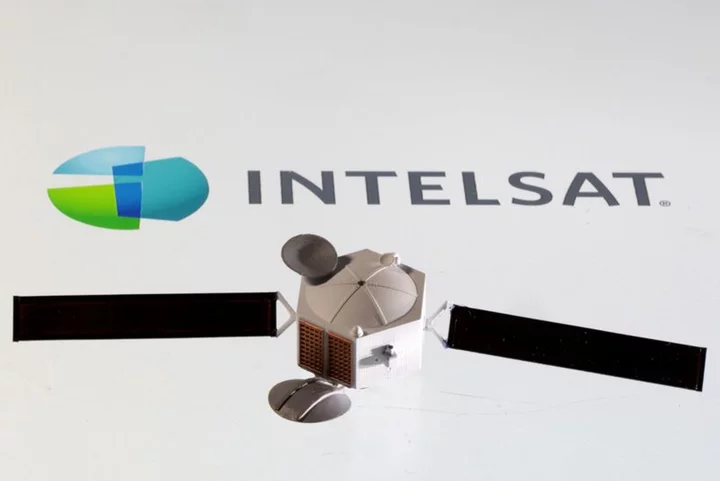
Intelsat, SES end talks on $10 billion merger - Bloomberg News
Intelsat SA has ended negotiations to combine with SES SA as it was not able to reach an
2023-06-22 04:16
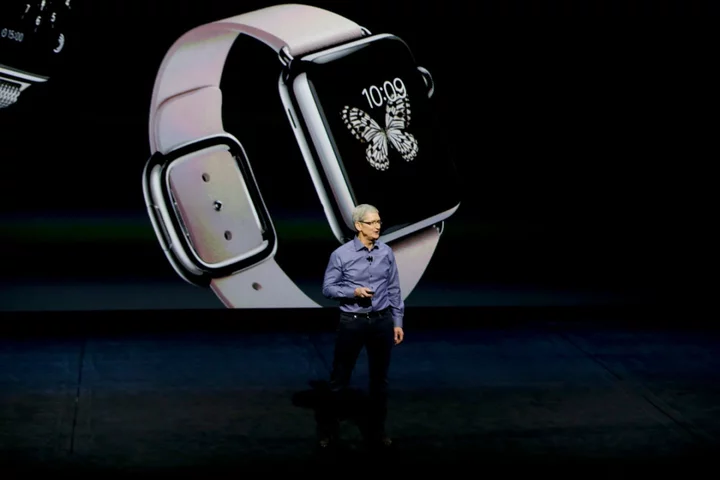
Apple Watch: The major changes coming to your wrist this year – and why some of them might surprise you
This autumn, Apple releases watchOS 10, the tenth-generation software for the Apple Watch, which went on sale in Spring 2015. In that time, there have been big developments in hardware, including the addition of an always-on display, Watches that connect direct to the mobile phone network, health advances like ECG, blood oxygen measurements, fall detection and more. And the software has been upgraded hugely, too, including new ways to interact with the Watch. Kevin Lynch, Apple’s Vice President of Technology, and Deidre Caldbeck, Director of Apple Watch Product Marketing, sat down exclusively with The Independent to talk about how things have changed. What’s been consistent over the years is that unlike many other devices, the all-day proximity means the Watch offers benefits without you interacting with it at all. Simply wearing it allows the Watch to monitor your heart rate and let you know if something’s amiss. In fact, the heart rate monitor was built into the first Apple Watch – at a time when few other wearables had such a sensor – for a more mundane task. Lynch explains, “We decided to focus on the heart in the early days, to get accurate calorimetry.” In other words, while most smart watches counted the calories you were burning through knowing your height and likely stride length, the Apple Watch was more precise because it took your exertions into account. “We built the sensor and showed you a way to view your heart rate. We didn’t really think that in itself was going to be compelling because you can measure your heart rate yourself just by putting your finger on your wrist and counting. But we found some people were looking at the heart rate and, when it looked weird, they talked to their doctor and found they discovered something about their health that they weren’t aware of. They started writing us letters about this – and we are still getting them today.” This led to Apple searching for ways to make the heart rate measurements more powerful. The Watch can now let you know if it spots your heart rate unexpected high or low, and led to sleep tracking and more recently monitoring overnight respiratory rate. This autumn will also see a focus on mental health as well as physical. The Watch already has meditation capabilities in the Mindfulness app but this will expand with a place to log emotions and daily moods. The Medications app will be able to send reminders if taking your medication hasn’t been logged on schedule. But Apple Watch has always reached beyond its health capabilities, major though those are. Lynch goes on, “Our question was also, how do we enable your Watch to be a key to the world?” This led to Apple Pay, so a double-tap on the side button lets you pay at a card reader, show a boarding pass, unlock a car or a hotel room and so on. Beyond that, Lynch says, “We look at how do we continue improving the experience, having the willingness to rethink and re-imagine, based on what our users are telling us.” That’s timely because this autumn there will be big changes in how the Watch will be used, even down to what individual buttons do. The new software sees the arrival of widgets on the Watch. Widgets are those highly useful items on a computer desktop or phone home screen that show updateable information. So, where the Fitness app on the iPhone shows a generic image, the Fitness widget tells you exactly how active you’ve been today, for instance. Or the widget for an app like the flight tracking app, Flighty, reminds you how many days until your next flight, or if it’s behind schedule. This is highly useful as previously most extra information on the Watch has been shown through complications, those little areas of some Watch faces that can show the date, today’s temperature, battery charge and so on. Those remain, but with watchOS 10, by turning the Digital Crown, a new stack of widgets scroll up on to the display. This means you can have a spare, simple Watch face but easy access to lots of stuff. Lynch explains, “We can show information with the Smart Stack. You can have a beautiful face like the Palette or Snoopy or whichever graphical face you’d like and have that extra information easily. Internally we called that ‘cake’, as in ‘have your cake and eat it too’.” The Snoopy and Woodstock Watch face, looks like it will be another highlight of watchOS 10, by the way. But this change means that the functions of the buttons have changed. Control Centre is the place where you turn your Watch to silent when you go to the theatre (you do remember to do this, don’t you?) or ping your iPhone when you can’t find it, for instance. It’s very useful and right now you invoke it by swiping up on the display, though this only works from the Watch’s home screen. With watchOS 10, you can’t do this any more, instead pressing the side button. The big benefit is it now works from any screen on the Watch, not just the home screen. But it’s a big change, which could be confusing for users. How carefully does Apple think about making these modifications? Caldbeck says, “It’s a big change but it’s worthwhile making and that is what comes into play when we make a decision like that. We think, how can we continue to evolve and improve the experience? And how can we take the things that you love about Apple Watch and make them better? “And sometimes it does mean we have to change something about the way you interact with the Watch to make it better. The side button is a really good example. We have tried different things with the side button, over the years. We originally had the friends circle so you could contact people close to you. And we know that Apple Pay is really compelling. But when you ask what are some of the other things that users need access to anytime, anywhere, that really that ends up being Control Centre.” Before you panic, this doesn’t mean that Apple Pay is about to change. As Lynch explains, “That is hardware-instrumented so it’s not only down to software. The double-press is wired at a low level physically and electronically so that you can’t fake it out. It means that no software can pretend that you’re trying to buy something, you have to have the double press to activate it at a low level. So, if we did want to change that, it would be quite extensive.” Apple is clearly careful when it comes to these changes. So, how do they come about? Lynch’s reply confirms the thoughtfulness. “Part of how we do this is we start with storytelling, until we get to a place where we think, wow, that would be really cool if the future was like that. Then we try it out. So, we’ll build prototypes, and carry them around ourselves. And it’s this stage, which we call ‘the carry’, where we live with the changes ourselves over time. Some of these things might initially feel strange but after a day or two you start feeling like, oh well, this is obvious now, it’s totally natural, and then people don’t want to go back. That’s when we know that we’ve got a good thing here.” Hardware and software are so thoroughly integrated, so I finally ask how many decisions come back to the battery. Lynch explains, “The way we look at power management comes at the beginning of each release and it’s a multi-year road map. We use the battery model as a fundamental element in talking about the features, we’re going to do. Everything we do has a power budget and we look to save power with other ideas to optimise power, so, we have some focused work each year to improve battery life from a software perspective, And then we invest some of those savings into new features that we are now able to do. “That’s combined with the hardware team working on battery, packaging, chemistry and all the electronics. The system on a chip from the silicon team continues to have improvements on power requirements. Part of how we did the always-on display was through the hardware, silicon and display teams working together and really was key to enabling it. “We have battery models that model average user activities. We call it ‘a day in the life’ and it represents the way many users use Apple Watch. We model the battery consumption we have quite ambitious targets each year. The battery life work is super obsessive.” The Apple Watch routinely lasts longer than a full day, of course. But battery anxiety is the malady of the twenty-first century, so it’s good to know Apple is serious about this. There’s plenty more to the new Watch software, from more advanced cycling workouts to automatically generated waypoints for hikers to NameDrop, where you tap your Watch on someone’s iPhone or Watch to transfer your contact details. The software will go on general release in the autumn, with a public beta version available next month. Read More Apple Watch 7 pre-order: How to buy the new smartwatch in the UK Apple introduces new version of Watch with complete redesign iPhone 13 - live: UK contract deals and prices for Apple, EE and O2 Apple seeks trademark of ‘actual apple’, Swiss fruit association says The new iPhone could have a major clue about Apple’s headset Man locked out of smart home for a week after he was accused of being racist
2023-06-22 03:55

Xbox increases price of Game Pass and consoles
Microsoft has hiked the price of Xboxes and its Game Pass offering, adding significant cost to both buying and playing its consoles. The price of an Xbox Series X will increase in almost every country, by different amounts. And the Xbox Game Pass subscription will increase in cost for the first time since it was released in 2017. It makes Microsoft just the latest company to up the prices of its monthly subscriptions. Netflix has gone through range of price hikes, for instance, and other video and music streaming services have also recently increased the cost of their monthly payments. Xbox’s Game Pass allows players access to a library of games for a monthly fee. The company has repeatedly suggested that it sees such online subscriptions as the future of gaming. The Game Pass service launched in 2017. Since then, it has stayed at the same price, though Microsoft has added more expensive options in the form of its Ultimate offering. Xbox will move the Game Pass Ultimate offering, which adds Xbox Live Gold and other features to the normal Game Pass subscription, from $14.99 per month to $16.99, or £12.99. The normal version of Game Pass will go from $9.99 to $10.99, or £8.99. The changes will go into effect from 13 August for existing subscribers, Microsoft said, though annual subscribers will be safe until their next bill arrives. For new subscribers, the new prices will be in effect from 7 July. Almost every country will be affected by the price increase. The Xbox console itself will also be hit by a price rise. In almost every country apart from the US, Japan, Brazil, Chile and Colombia, the price of an Xbox Series X will go up considerably, though the cheaper Xbox Series S will not be affected. Read More US sues to block Xbox takeover of Call of Duty developer Activision Blizzard Elon Musk sparks outrage with threat to ban ‘cisgender’ as a ‘slur’ on Twitter Our nearest supermassive black hole ‘woke up’
2023-06-22 03:48
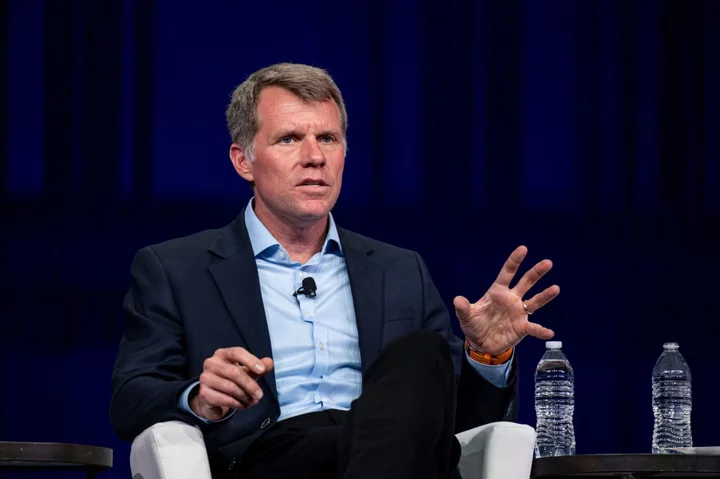
US Warns of China’s IP-Theft ‘Playbook’ for AI, Advanced Tech
The US should build a coalition of countries to stop China from applying its “playbook” of stealing intellectual
2023-06-22 03:27

Twitter Resumes Paying Google Cloud, Patching Up Relationship
Twitter has resumed paying Google Cloud for its services, patching up a relationship that became strained after Elon
2023-06-22 03:24

Schumer outlines plan for how Senate will regulate AI
Senate Majority Leader Chuck Schumer announced a broad, open-ended plan for regulating artificial intelligence on Wednesday, describing AI as an unprecedented challenge for Congress that effectively has policymakers "starting from scratch."
2023-06-22 01:58
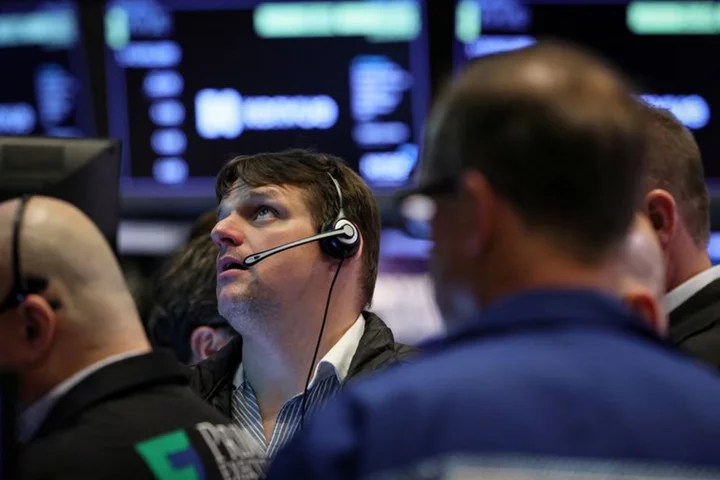
US bond traders seek edge by adopting tech -report
By Matt Tracy (Reuters) -U.S. bond investors are coming around to using technology more to trade fixed-income products, as they
2023-06-22 01:52

Amazon duped millions of consumers into enrolling in Prime, US FTC says
By David Shepardson WASHINGTON (Reuters) -The U.S. Federal Trade Commission on Wednesday accused Amazon.com of enrolling millions of consumers into
2023-06-22 01:48
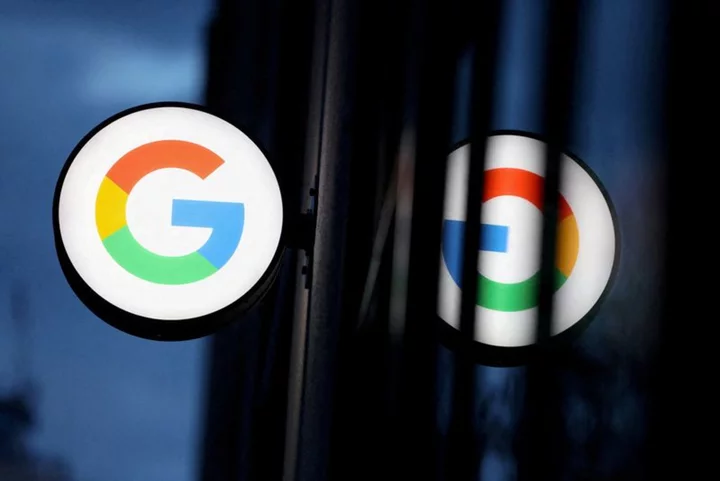
Google hit with $15 million verdict in US trial over audio patents
By Blake Brittain Alphabet's Google must pay patent holding company Personal Audio LLC $15.1 million for infringing two
2023-06-22 00:17

New discovery on Venus points towards signs of life
Life forms could potentially be able to survive in the conditions in the clouds above Venus – although, to be honest, we don’t want to be the ones who go there and have to test this theory out. Venus has fascinated scientists for years due to the relative similarities between the planet and Earth. The surface of Venus now is around 475 degrees Celsius, but its geology resembled Earth’s before the greenhouse effect took hold over millions of years. To add to that, the surface is also covered in sulphuric acid, so the chances of it being able to foster life is slim to say the least. Sign up to our free Indy100 weekly newsletter However, new research has looked into the conditions in the clouds above the surface and the findings have been published in the journal Astrobiology. The key point revolves around the presence of the biosignature gas phosphine, which is often identified as a sign of life. It also posits the idea that potential life forms on the planet could use sulphuric acid the way life forms on Earth use water. The paper reads: "Although we consider the prospects for finding life on Venus to be speculative, they are not absent. "The clouds can support a biomass that could readily be detectable by future astrobiology-focused space missions from its impact on the atmosphere." It goes on: “We conclude that Venus' aerial biosphere must be much smaller than the Earth's. However, even such scarce, strictly aerial life could leave a detectable mark on the chemistry of the atmosphere in the clouds… “We conclude that terrestrial precedent exists for mechanisms that could keep at least some life-containing cloud particles aloft on Venus, and it prevents the entire ecology from inevitably falling to its doom in the hot, lower layers of the atmosphere.” Have your say in our news democracy. Click the upvote icon at the top of the page to help raise this article through the indy100 rankings.
2023-06-21 22:53

FTC Sues Amazon for Sabotaging Consumer Attempts to Cancel Prime
The US Federal Trade Commission sued Amazon.com Inc. Wednesday, alleging the e-commerce giant duped consumers into signing up
2023-06-21 22:53
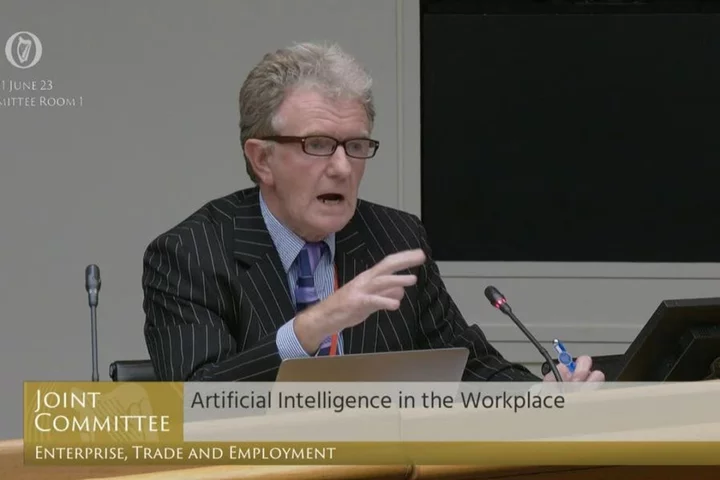
AI developing faster than laws aiming to regulate it, academic warns
Artificial intelligence (AI) is developing at a faster pace than laws can be drafted in response, an academic has warned. Although the technology has been around in some form for some time, the rate at which it is changing and improving is the new, key challenge, senators and TDs were told. The Oireachtas Enterprise Committee heard that AI can offer “profound opportunities” to help people, but can also be used to reduce white-collar employees’ salaries and even prompt diplomatic incidents. Professor of AI at Trinity College Dublin Gregory O’Hare cited cases including technology beating a world chess champion in 1997, as well as fake AI-generated images of Donald Trump being arrested and the Pope wearing a designer puffer jacket, as he outlined landmark moments in the development of the “disruptive technology”. He said there have been many previous “false dawns and unrealised promises” about the technology’s potential, and that ChatGPT has gathered 100 million users in two months and is the fastest-growing technology in history. He said white-collar professions like the law, academia, marketing, architecture, engineering, journalism and the creative industries will all be “profoundly affected”, and cited a recent study which estimated that two-thirds of all US occupations will be affected by AI. “In terms of the point around wages, I think there is certainly an opportunity for employers to reduce salaries,” he said. The Irish Congress of Trade Unions (ICTU) argued that unions should be involved at an early stage in any initiatives looking to address concerns around AI. Dr Laura Bambrick, of the ICTU, said the EU AI Act is not suitable to regulate AI and is “more than disappointing” from workers’ point of view, stating that the amendments tabled offer some comfort but “don’t go far enough”. “It only requires software providers to self-assess their own technology between low- and high-risk before putting it on the market, and did not include any rules on the use of AI in the workplace,” she said. The velocity of AI technology is, alas, fast exceeding the rate at which the law around AI can be framed Professor Gregory O'Hare, Trinity College Dubin Prof O’Hare said he believes the current legislative framework proposed to regulate AI is not “in a position to be able to respond with the speed that we need”. He added: “The velocity of AI technology is, alas, fast exceeding the rate at which the law around AI can be framed.” Cork East TD David Stanton said that statement is “quite scary”, and “science fiction is actually becoming science fact”. He suggested the topic is so serious and developing at such a pace that it could warrant setting up a dedicated Oireachtas committee to discuss it. During the session, committee chairman Maurice Quinlivan said he used ChatGPT to double-check that the three guests had not used ChatGPT to write their opening statements, with one TD remarking he was “using AI to check for AI”. Prof O’Hare said it is difficult to assess how AI comes to a particular conclusion, even for experts. “Not only is there typically not a set of algorithmic steps that one, even with a trained eye, could scrutinise, AI, and in particular deep AI, does not have an algorithmic basis. “So, even were it to be the case that someone like myself, a professor of artificial intelligence, were I to look at a particular AI application that was using deep learning, I would have great difficulty in being able to establish, on the surface, how it actually arrived at its deduction and its recommendation or conclusion.” It knows no political boundaries, it knows no geographic boundaries, no socio-economic boundaries. This is something that demands potentially a global position Professor Gregory O'Hare, Trinity College Dublin He added that, while it is crucial to engage with all stakeholders involved, it will take “some considerable time”, and the rate at which AI is developing “does not afford us that level of time”. Responding to the suggestion that the use of AI should be slowed down or halted to allow for consultation, he said: “We’re talking about something that knows no boundaries.” “It knows no political boundaries, it knows no geographic boundaries, no socio-economic boundaries. This is something that demands potentially a global position. So Ireland needs to find a way and a voice into that global discussion.” Ronan Lupton SC, of the Bar Council of Ireland, said that although AI has been around for some time, “where we’re moving to now, at the moment, is a sphere in an environment of extreme pace”, which is the “key challenge”. He said AI could help people with speech disabilities to communicate, but also warned of the dangers of misinformation. He said that newsrooms, instead of sending a draft article to a solicitor to check for defamation or other legal issues, are now using artificial intelligence technologies instead, which he said is “an interesting development”. Prof O’Hare agreed with the potential of AI to help people with disabilities and said it is “very important that we do not throw the baby out with the bathwater”. “This technology has profound opportunities, absolutely profound opportunities.” But he suggested that, because the technology has been put out “into the wild”, it could be used for “sinister” means which could have financial or political implications, such as boundary incursions – and even wars. “The question is will it always be used for good purpose, or is there a significant chance that it will be used for Machiavellian purposes?” he said. Read More Charity boss speaks out over ‘traumatic’ encounter with royal aide Ukraine war’s heaviest fight rages in east - follow live Facebook Marketplace is most complained-about online retail platforms UKRI announces £50 million to develop trustworthy and secure AI ‘Last Beatles record’ was created using AI, says Paul McCartney
2023-06-21 19:51
